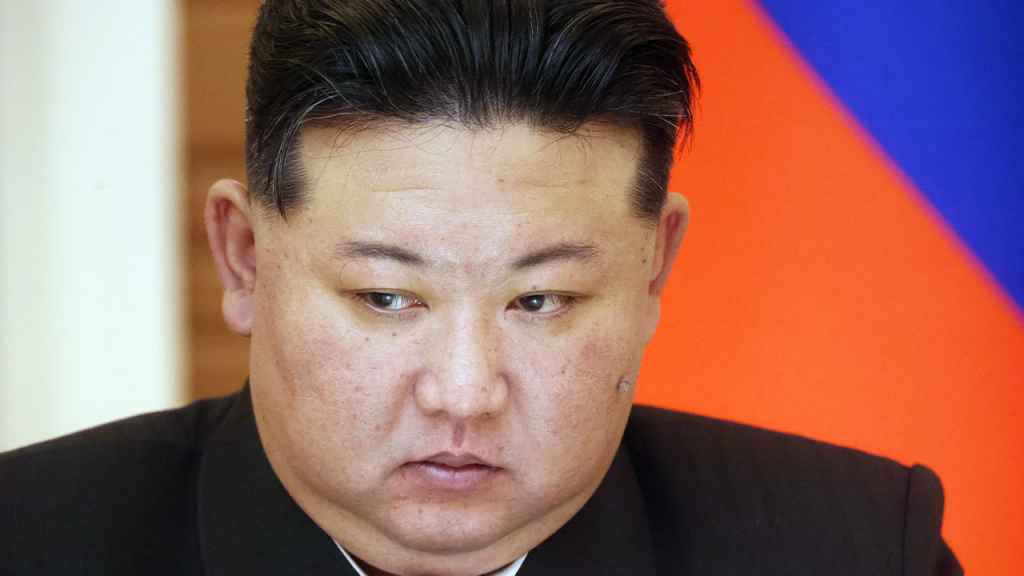A new report from South Korea suggests that North Korean dictator Kim Jong Un ordered the execution of at least 30 government officials following devastating floods that occurred over the summer, claiming thousands of lives. According to South Korea’s TV Chosun, between 20 and 30 individuals were sentenced to capital punishment last month for failing to prevent the deadly flooding. The North Korean Central News Agency reported that Kim instructed authorities to “strictly punish” the officials in the Chagang Province when the floods hit in July.
North Korean state media documented heavy rains in late July that resulted in over 4,000 homes and various other buildings and infrastructure flooded in the northwestern city of Sinuiju and the neighboring town of Uiju. Kim pointed fingers at public officials, accusing them of neglecting disaster prevention and causing unacceptable casualties. Interestingly, the North rejected offers of aid from neighboring countries such as China, Russia, and South Korea, emphasizing the strained relationships with these countries. Kim conducted a two-day tour of Uiju in August to assess the situation, meet with flood victims, and discuss recovery efforts, during which he criticized South Korea for allegedly exaggerating the flood damage and portraying it as a smear campaign against his government.
The extreme secrecy within North Korea makes it challenging to obtain precise details regarding the executions, but it is evident that Kim Jong Un took drastic measures to hold officials accountable for the failure to prevent the deadly floods and their aftermath. The reported executions follow a pattern of severe consequences for officials perceived as negligent or disloyal within the authoritarian regime. The crackdown on officials highlights the ruthless leadership style of Kim, who is known for his iron grip on power and willingness to employ extreme measures to maintain control and quash dissent.
Kim Jong Un’s response to the devastating floods underscores the challenges faced by North Koreans living in a volatile environment characterized by natural disasters, political repression, and isolation from the international community. The reclusive nation’s refusal to accept aid from neighboring countries points to the regime’s prioritization of self-sufficiency and independence, even at the expense of potentially lifesaving assistance. Kim’s handling of the flood crisis reflects the regime’s emphasis on maintaining a façade of strength and self-reliance while deflecting blame onto perceived external threats, such as the South Korean government’s alleged propaganda efforts.
The execution of government officials in the aftermath of the floods serves as a chilling reminder of the brutal nature of the North Korean regime, where loyalty to the leadership is paramount, and any perceived failures or disloyalty are met with severe consequences. The reported executions highlight the risks faced by those in positions of power or influence within the regime, who must navigate a treacherous environment of political intrigue and the constant threat of punishment for perceived transgressions. The continued repression and insecurity within North Korea perpetuate a climate of fear and control, where individuals must tread carefully to avoid falling out of favor with the ruling elite and facing dire consequences.
Despite the international community’s efforts to provide aid and support to the North Korean people in the wake of natural disasters and humanitarian crises, the regime’s refusal to accept assistance underscores its preference for isolation and self-reliance. The regime’s rejection of aid from countries such as China, Russia, and South Korea reflects its commitment to maintaining a façade of independence and control, even in the face of devastating floods and other calamities. Kim Jong Un’s leadership style, characterized by strict control, harsh punishment, and a focus on internal unity, perpetuates a cycle of repression and fear within North Korea, where individuals are expected to prioritize loyalty to the regime above all else, under the constant threat of punishment for perceived disloyalty or incompetence.


